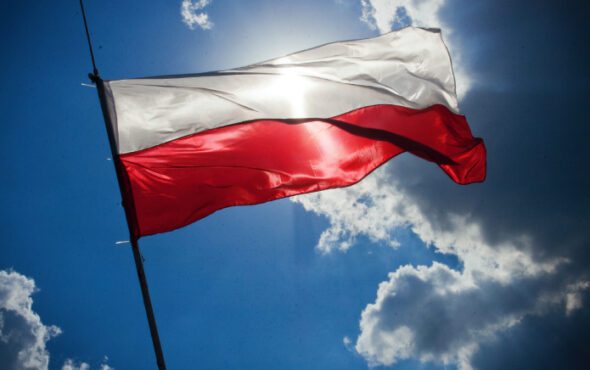
LGBTQIA+ rights campaigners demanding legal recognition for same-sex couples in Poland have hailed a European court ruling on Tuesday that increased pressure on Donald Tusk’s new government to quickly change the law.
Tusk said during campaigning that his party would introduce a provision for same-sex civil partnerships and he considered it a priority, a stance echoed by Equality Minister Katarzyna Kotula after Tuesday’s decision by the European Court of Human Rights (ECHR).
As well as adding momentum towards civil unions legislation, LGBTQIA+ Poles said they hoped Tuesday’s ruling could boost their demands for equal marriage rights.
“We hope that it will set in motion a whole avalanche of good changes in Poland,” Krzysztof Alcer and Grzegorz Lepianka – one of the five same-sex couples who took the case to the ECHR – said in a written statement.
Here’s what you need to know:
What rights do Polish LGBTQIA+ couples have today?
Poland is one of only six countries in the 27-member European Union that offers no legal recognition for same-sex partnerships – whether through gay marriage laws or civil union legislation.
The other countries are Bulgaria, Latvia, Lithuania, Romania and Slovakia.
That means gay couples are denied rights such as inheritance even if they have lived together for years, and are deprived of tax benefits. Laws recognising cohabitation offer them some limited legal protections, for example in tenancy agreements.
During its eight-year rule, the nationalist Law and Justice (PiS) party said extending marriage and adoption to gay couples threatened traditional family structures and was harmful for children.
Will court rulings lead to same-sex marriage rights?
Rulings by the ECHR are binding on members of the Council of Europe, an organisation separate from the European Union, but some remain outstanding for years.
The court has already ruled in similar cases brought against Italy, Russia, Romania and Bulgaria that same-sex couples can demand legal safeguards for their relationships.
While Italy introduced civil unions shortly after, the other countries have failed to respect the judgment.
A separate case recently brought before the Court of Justice of the European Union (CJEU), involving two gay Polish men who married in Germany in 2018, is the first to be referred to the EU’s top court for a ruling.
Lawyers and LGBTQIA+ rights advocates say it could add to mounting case law on the recognition of same-sex marriage rights in countries that forbid such unions.
The EU court must consider the bloc’s freedom of movement principles, which grant rights to the spouse of an EU citizen under certain conditions, and whether they should extend to all spouses regardless of gender.
CJEU rulings are binding on all EU members, though the scope of the Polish couple’s marriage case means it cannot oblige Warsaw to change its constitution and introduce a same-sex marriage law.
It could, however, grant legal recognition to foreign-registered same-sex marriages in Poland.
What are the main obstacles to legal recognition?
The Tusk government has promised to push for same-sex civil unions but not full marriage rights, which would likely draw stronger opposition in the majority Roman Catholic country.
While attitudes are shifting, a new study from the Pew Research Center showed only 41% of Poles are in favour of same-sex marriage.
But even changing the law to recognise same-sex civil unions is expected to draw strong opposition from opposition lawmakers.
It could also be vetoed by the country’s opposition-aligned president, and face a referendum. President Andrzej Duda has not said whether he would use his veto to block same-sex partnership legislation.
Reporting by Joanna Gill.
GAY TIMES and Openly/Thomson Reuters Foundation are working together to deliver leading LGBTQIA+ news to a global audience.



